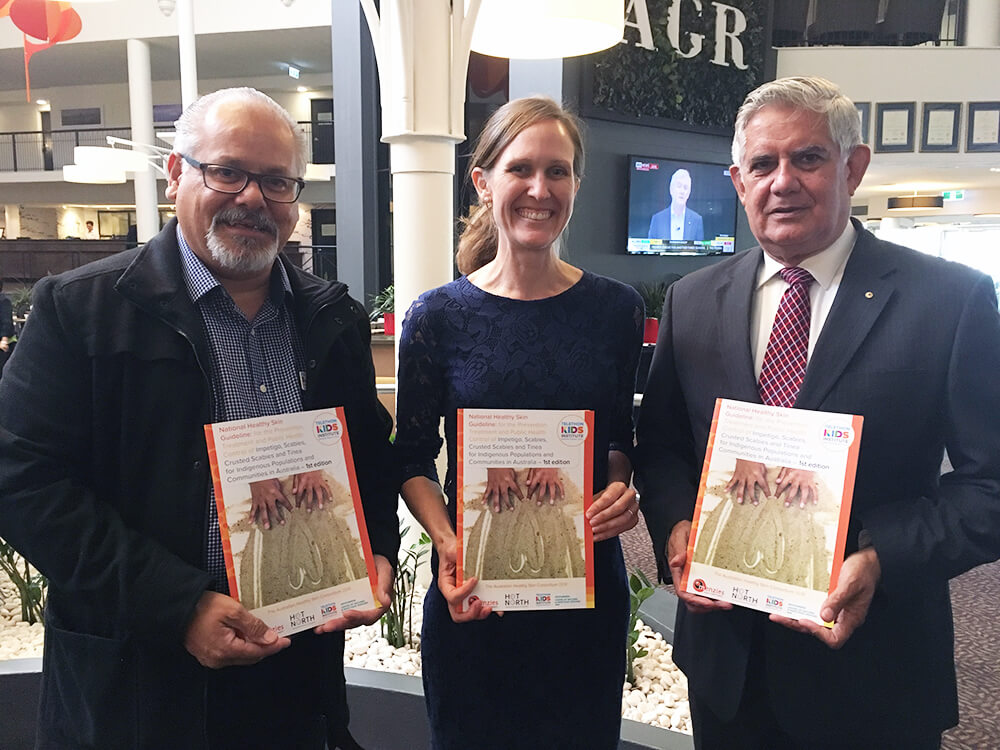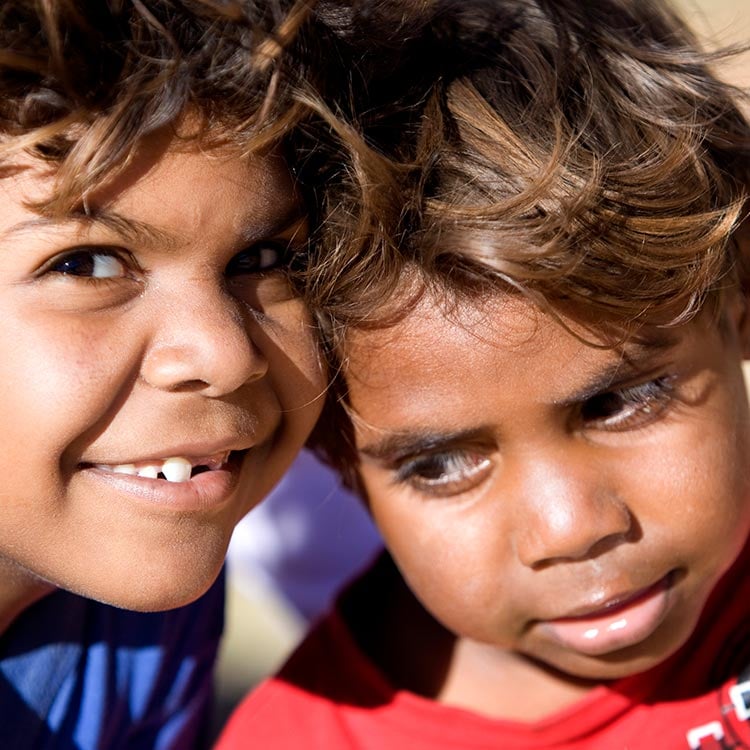Search

News & Events
Co-ordinated approach urgently required to slow progression of antibiotic resistanceAboriginal mum and child

News & Events
National guideline to tackle record rates of skin infectionResearchers have developed the first National Healthy Skin Guideline to address record rates of skin infections in Australia’s Indigenous communities.

News & Events
Rheumatic heart disease remains a major killer in Oceania regionA new study shows that people living in the Oceania region, including Australia, have the highest risk in the world of dying from rheumatic heart disease.

News & Events
New recommendations to stop antibiotics soonerThe Kids researchers are amongst a group of experts who have recommended that doctors can stop intravenous antibiotics sooner in children.

News & Events
Gastro gap between Aboriginal and non-Aboriginal children shrinkingThe world's largest study of gastroenteritis trends in children has shown the disparity between Aboriginal and non-Aboriginal health may be improving.
Research
Impact of an Ivermectin Mass Drug Administration on Scabies Prevalence in a Remote Australian Aboriginal Community.Scabies is endemic in many Aboriginal and Torres Strait Islander communities, with 69% of infants infected in the first year of life.
Research
Characterization of G2P[4] rotavirus strains causing outbreaks of gastroenteritis in the Northern Territory, Australia, in 1999, 2004 and 2009Outbreaks of rotavirus diarrhea cause a large disease burden in the Alice Springs region of the Northern Territory, Australia.
Research
Risk factors and comorbidities for invasive pneumococcal disease in Western Australian Aboriginal and non-Aboriginal peopleAustralian Aboriginal people have among the highest rates of invasive pneumococcal disease (IPD) worldwide. This paper investigates clinical diagnosis, risk...
Research
Predictors of Disease Severity in Children Hospitalized for Pertussis during an EpidemicThis study aimed to determine factors associated with severe pertussis in hospitalized children during an epidemic using a novel pertussis severity scoring...
Research
Assessing the effect of meningitis prevention and treatment.In high-income countries serious bacterial infections such as meningitis are uncommon, but their severity has led to prompt adoption of vaccines for...
